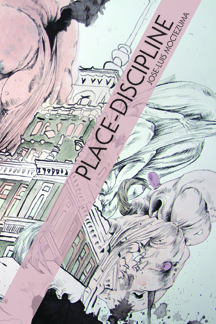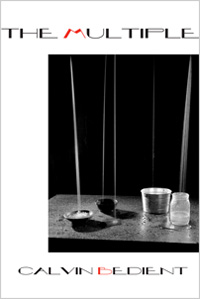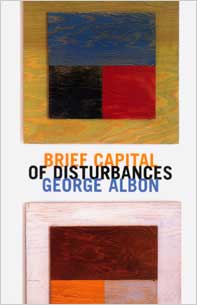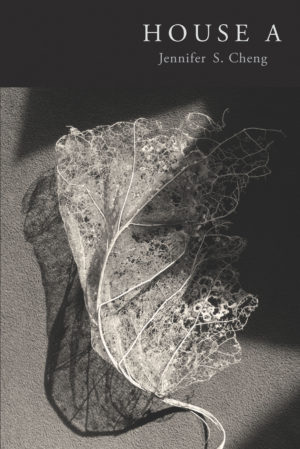Description
Winner of the Omnidawn 1st/2nd Poetry Book Prize
Selected by Myung Mi Kim
A psycho-geography and metahistory of the formation of Chicago, taking its title from Sun Ra’s 1972 album, Discipline 27-II, Place-Discipline explores hybridity, hyphenation, and heliocentric bordercrossing as possible alternatives to the darkening “white magic” of cognitive capitalism and cultural gentrification.
Place-Discipline culls, cleaves, and retextures language in the service of non-totalizing modes of formal and prosodical attentions that powerfully intensify the stakes and commitments of poetry. Jose-Luis Moctezuma tends the striations, variegations, and substrata of translingual, transcultural, and transhistorical materiality. Moctezuma activates the sonic, the polymetric, and the haptic not as a palliative to the incessant, coercive logics of empire, but to potentiate futural past present temporalities that mobilize the unterritorialized in oneself, in perception itself.
Myung Mi Kim, judge of the Omnidawn 1st/2nd Poetry Book Prize
Too many contemporary poets are stuck to the tones of the prefabbed social, piping up and down the scales of shared “national” definition. So it’s rare and exciting to encounter a poet who deftly dials into cross-cultural microtonalities that make visible the spectral historicities of Imperium’s time-&-space trickery. Jose-Luis Moctezuma aims his political scope at the psychic rootwork of our past-present moment, finding pathways out into sun-dappled new vistas and desires. The hard won futurism implicit there bespeaks of a new cartography where syncretism has become autochthony. Strange to even utter it, but Place-Discipline is the latest mutation of the Whitman-Marti-Cesaire complex, and the democratic entanglements are still us.
Rodrigo Toscano
Jose-Luis Moctezuma joins a great tradition of fabricators of America, from Melville to Pound to Charles Olson; Place-Discipline resonates prosodically and in its knowledge-clusters with the assurance of The Maximus Poems. This is an establishing work. How can a Latino poet re-fabricate America and fabricate his own multiple heritages in the white world and in English? First, through a practice of dérive in the down and dirty hyperpolis. As Moctezuma’s verse moves between urban zones in Chicago, a city of multiple denied, superimposed and circumscribed worlds, its rhythms shift within and against their rhythms, poised in encounter, whether stalking in reactive isolation or dancing in unison. Second, Moctezuma reverse-engineers America from the globally dispersed world city, an exploded Chicago, weaving the Hispanic and indigenous threads back in its fabric assertively. Third, he fabricates himself as an American through the cants of English from Shakespeare to Bhanu Kapil and a myriad of points between. Every page is as rich in echoes as Caliban might wish. There is wild and shocking humour in this book (I Gather the Limbs of ISIS) as well as instruction, there is rage and there is beauty. No snippets here: Place-Discipline must be read through, not raided or sailed around. What an astonishing first book.
John Wilkinson
Moctezuma’s book is hot—burning with names, celebrated and recriminated. That is maybe its most modern quality—a flaming illumination of the signifier as such, of the sign in its forceful autonomy. But his is a modernism that can stand to be modern: with it, we are reminded how desperate the 1930s are to recur, how close we are to that reactive break into racial nationalism and its obsession with signs of difference…Reminding readers of the inescapable scenes of resistance carried by the city of Chicago… Moctezuma’s book wishes to think beyond the brands that now sell us sovereign racism…it is a fantasy needed for imagining a place in which people can live together without hating one another, without living at the expense of one another, and where they can talk.
Edgar Garcia, Chicago Review
Reviews
About the Author
Excerpt
Jose-Luis Moctezuma is a Mexican-American poet, professor, and editor. He is the author of Spring Tlaloc Seance (Projective Industries, 2016) and Place-Discipline (Omnidawn, 2018). He received a PhD in English at the University of Chicago. His poetry and criticism have been published in Fence, Jacket2, Chicago Review, and elsewhere. He lives and teaches in Chicago.
The L of Songlines
:: came to chicago, undernourished &
winded as it were, unsensing
of the spatialization of river-speak
because Meridian, because
nel mezzo del cammin di nostra vita
overplays its aged incantatory
burdens on the mediocrities of mid-
way contraband & the flatnesses
overcome by spotted skylark. Here-
tofore the particulars of
local pride suggested in lakeshore
leisure-cruise by road, in
disguising what oppositions attract
or dissemble :: came here &
did not partition, yet partitions
manifest, divisions & diversities
of some neglected racial nature still
inquisitive of mythic wrath
or, anyway, gentried into subsets
of blanched privilege :: fire came
& did not come, the absent froth of
tensionless lake water, hard
put to it, this patterning that does
not invite but segregates,
sunders but does not ask history inside
for a drink only looks away—
does not color in the books but stores winter
as uniform, the collateral
face of homeless and fear-debauched
citizenry, in a capital of
secondary fulminations :: checagou
skunkz & damnation ::




